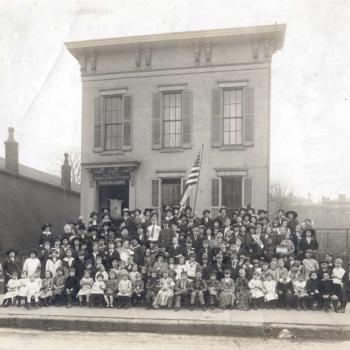But our faith isn't fideism. The good news isn't an invitation to make an irrational decision, but the story of a person who lived, died, and lives still. We are not sharing news about an idea, but about a being who is fully God and fully man. While nonbelievers may not have experiential knowledge of this person, they do have an inherent disposition to recognize him. That is the common religious foundation we share with them.
Our evangelistic mission, therefore, is simply to share with others the good news that they too can know what we know. Sometimes this will mean that we must tell them about Jesus and maybe even try to bring them to a point of decision about him. Sometimes this will require us to share our faith by telling others about our own experiences. Other times it will require us to remove the worldview fog that prevents them from seeing clearly what they, by disposition, can and should know.
Most times, though, it will simply mean living as if we really believed that the gospel truly is good news for believers right here, right now, and not just in the hereafter.
God might use prayer cards or religious tracts to bring the lost to salvation and redemption. He might use young men looking to win the souls of people they don't bother to get to know. But I suspect that he'd prefer that we introduce him as a person rather than hawk him like a car dealer selling six-year-old Chevies. I think he'd rather the good news be shared rather than sold.
Joe Carter is web editor of First Things and the founder of Evangelical Outpost. He is an adjunct professor of journalism at Patrick Henry College and previously served as the managing editor for the online magazine Culture11 and The East Texas Tribune. Joe has also served as a director of communications for both the Center for Bioethics and Human Dignity and Family Research Council. He is the co-author of How to Argue like Jesus: Learning Persuasion from History's Greatest Communicator.



